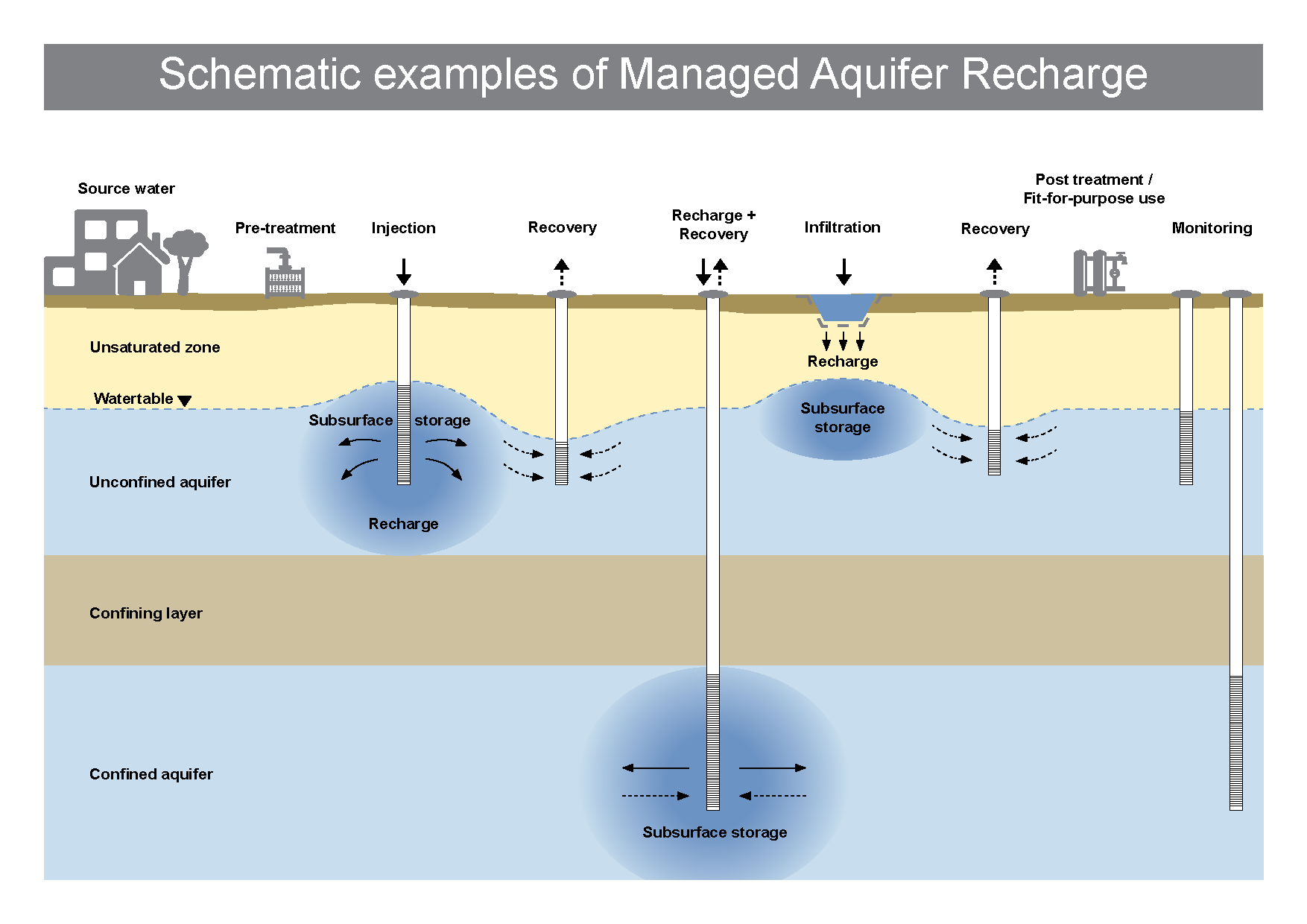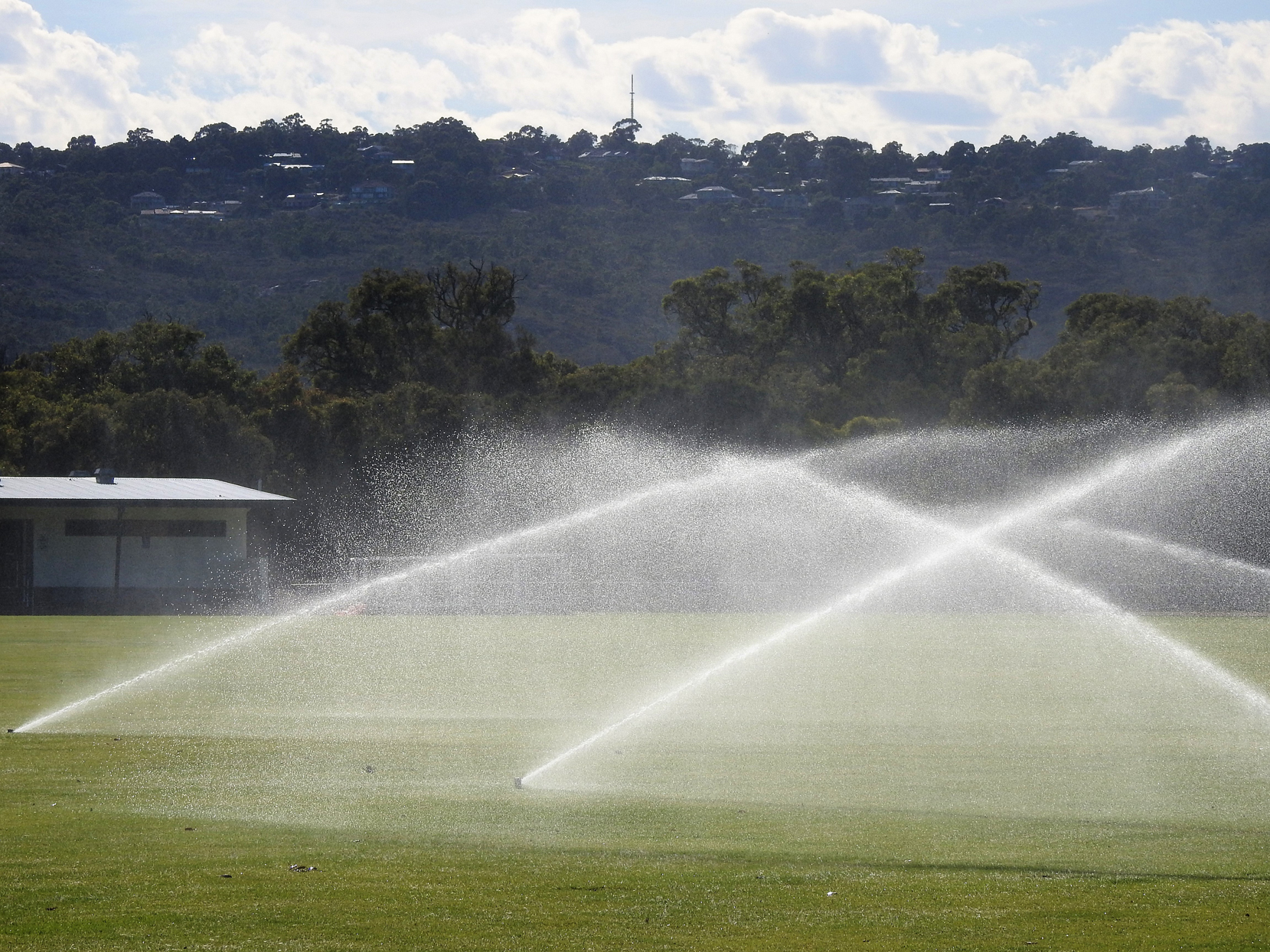The new policy – Managed aquifer recharge in Western Australia (2021) replaces Operational policy 1.01 – Managed aquifer recharge in Western Australia (Department of Water, 2011) and earlier practices for MAR operations adopted by the department. It should be used in conjunction with the department’s new guideline – Water and environmental considerations in Managed Aquifer Recharge operations in Western Australia (2021).
The MAR policy and guideline provide a management framework for MAR operations under the current water and environmental legislation in Western Australia. They include useful information to assist with establishing a MAR project, while ensuring the environment, water users and public health are protected. Please see the links for the documents in Publications below.
What is MAR?
Show moreAquifers are usually recharged through injection bores or structures such as infiltration trenches or ponds. Water for MAR can be taken from natural sources such as watercourses or aquifers, or alternative sources such as stormwater and treated wastewater.
Source water usually needs to be treated before infiltrating or injecting into the aquifer, to ensure the water quality and environmental values of the aquifer are protected. Further treatment may be needed after recovery, depending on what the water will be used for.
The figure below shows examples of three common MAR scenarios:
- Recharge by injection followed by recovery.
- Recharge and recovery in a single bore.
- Recharge by infiltration followed by recovery.
Infiltration or injection can also be undertaken for environmental benefit with no recovery.
Why MAR?
Show moreStoring water in aquifers limits evaporation and allows collection and storage of water sources such as stormwater and surface water when in excess, so that it is available in drier periods and reduces the potential for water supply shortages.
It can provide sustainable water supplies for community, industry and environmental needs, and create options for water supplies, particularly in areas where existing water resources are limited.
MAR can also support waterwise outcomes, and will be an important part of the delivery of the Waterwise Perth Action Plan and the State Government’s response to the impacts of climate change. It can help to create cool, liveable, productive, green and sustainable environments and contribute to the important targets of using less groundwater and more recycled and alternative water across the Perth and Peel regions.
See the MAR brochure under Publications for more information.
How to obtain approvals for MAR in WA
Show moreThe approvals required may vary depending on the nature, scale and location of the proposed operation.
A summary table is included in the guideline, with the approvals and supporting information that may be required for all government agencies. For a summary of how MAR works in WA and requirements for approval, see the MAR brochure in the Publications below.
MAR operations in WA
Show moreWant to know more?
Show moreIf you would like more information, please refer to:
- the department’s website for links to all published documents, regulatory information and framework.
- the EPA website for EPA policy and assessments.
In addition, the National Water Quality Management Strategy (ARMCANZ & ANZECC, 1994) guidelines and documents provide detailed information on MAR feasibility, assessment and management.
Contact us
Show moreIf you would like to discuss any issues related to the MAR policy or guideline, or for advice on a specific proposal, please contact the Department of Water and Environmental Regulation.





